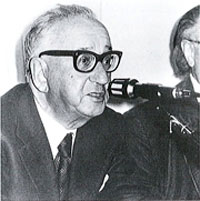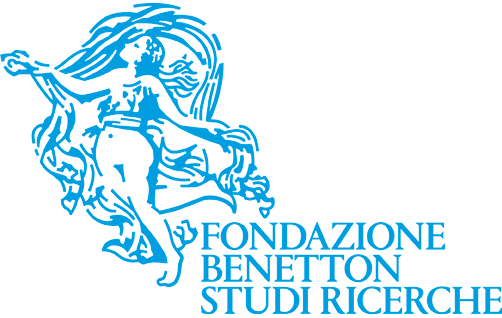
Quod agendum? Rosario Assunto, between report and design
lecture
| , from |
|---|
| Caltanissetta |
Giuseppe Barbera and Massimo Venturi Ferriolo, members of the Foundation’s Scientific Committee, will present – together with Piero Zanetov, Rosario Assunto’s grandson, Sofia Varoli Piazza, architect, and Marco Tamaro, the Foundation’s director – the results of the research conducted by scholarship holder Matilde Bonato on the significance of Rosario Assunto’s work, as part of the landscape Scholarships awarded by the Foundation in 2015.
Author of «impure thought», Rosario Assunto was a multifaceted and passionate scholar, able to investigate with an original approach a wide variety of topics, such as the artistic forms of the Middle Ages, German philosophy of the early nineteenth century, the 19th century poetics of Rilke and Valéry and the disappearance of landscape beauty in Europe after WWII.
The variety of the topics tackled by the Sicilian philosopher, far from making his work haphazard or chaotic, is a distinctive trait of his thinking, which explores different fields and perspectives, intertwining in an unparalleled manner history, art, philosophy and nature. The wealth arising from the weaving work carried out by Assunto is especially highlighted in the long and elaborate study that the philosopher devoted to the changes in European cities and landscapes in the second half of the twentieth century. In years when most scholars tied the topic of land management to issues such as productivity or economic growth, the Sicilian philosopher chose not to stop at the mere collation of scientific and quantitative data on the healthiness or usefulness of the spaces inhabited by man, but to integrate that perspective by taking into account some aspects often left in the background by scholars, namely those related to the beauty, history and uniqueness of places. The adoption of a similar point of view makes Assunto’s work wholly original. Instead of endorsing the idea of a Europe characterised solely by strong economic growth and unbridled technological development, the Sicilian philosopher’s take also highlights the processes of disorientation and dramatic impoverishment that accompany such growth. We are faced with a reality – Assunto explained in 1973 – «that the consumerist passion has made perhaps wealthier, albeit at the cost of the loss of a beauty, which we do not know whether it may be replaced with another; while we are certain we shall never recover it, should we really lose it once and for all».
Text taken from Matilde Bonato’s research paper: Quod agendum? Rosario Assunto, between report and design
